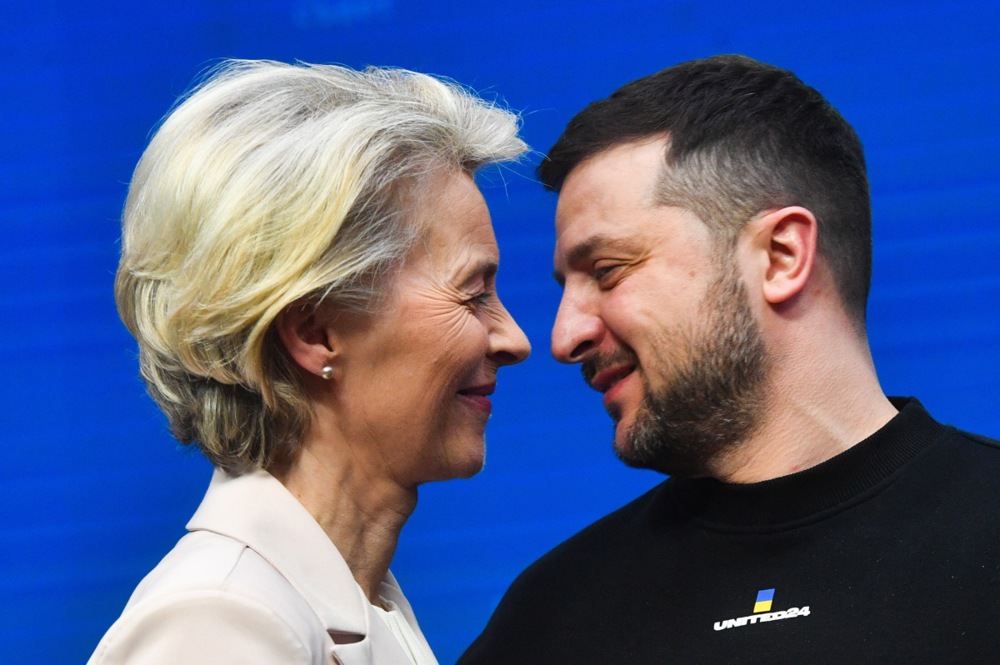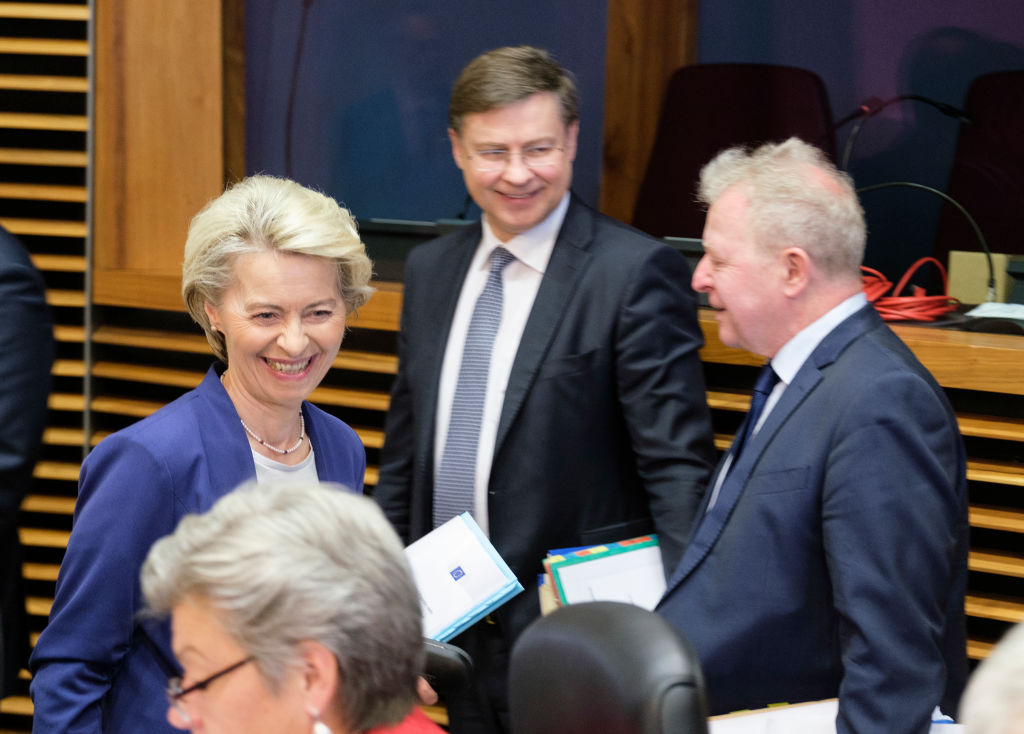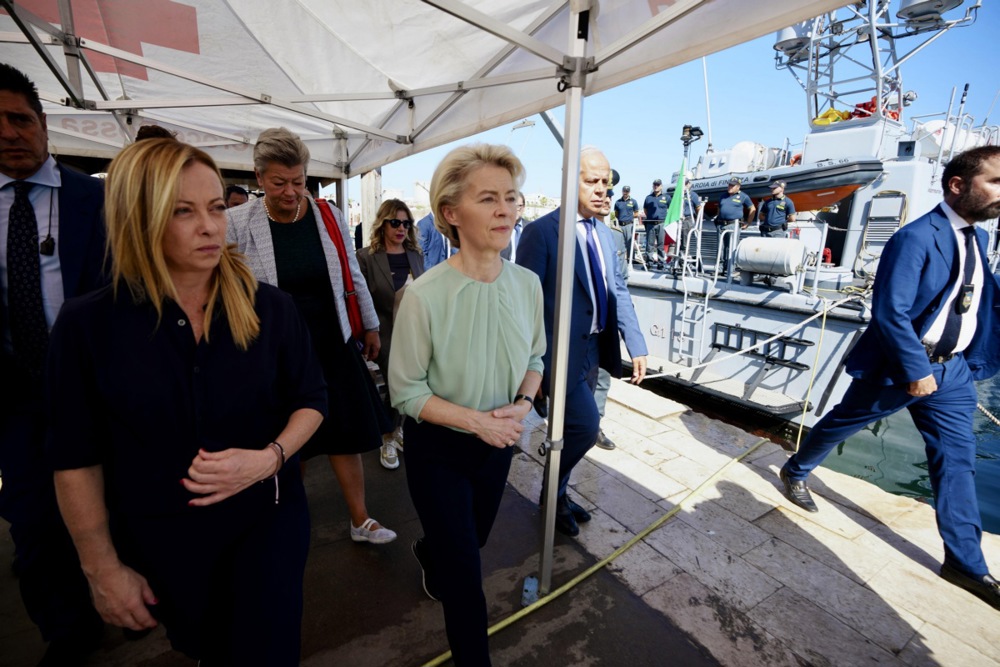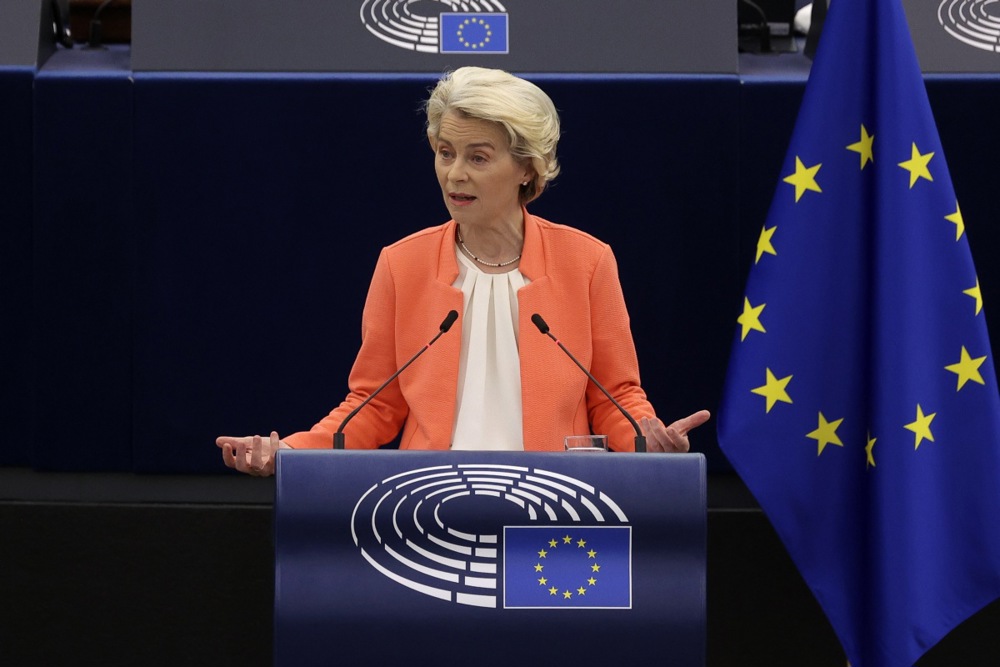Donald Tusk, the candidate designated by his party to head a coalition of parties that together look set to unseat the current ruling conservative Law and Justice party (PiS) from office, met with European Commission President Ursula von der Leyen in Brussels on October 25.
He hinted that the EC would be flexible with the government he hopes to form over the unblocking of Poland’s post-pandemic funding and other issues.
Tusk, a former President of the European Council (2014-2019) and Polish prime minister between 2007 and 2014, met with von der Leyen and EP President Roberta Metsola.
In doing so he was attempting to fast-track the unlocking €35.4 billion worth of post-pandemic funds blocked by the EC over Poland’s alleged rule-of-law transgressions.
Speaking ahead of his meeting with von der Leyen, Tusk said he had come to Brussels to “accelerate the process of returning Poland to a full presence in the EU”.
He stressed that unlocking the European Union funds was his main goal. “I had to take this initiative before final decisions were made, because all methods, including non-standard ones, had to be used to save the money that Poland deserves,” he said.
After his meeting with von der Leyen, Tusk was upbeat in claiming that Poland could “count on far-reaching flexibility on the part of European institutions”.
He did acknowledge that there were still conditions set by the EU in the “milestones” his new government would have to meet. Despite that, he said: “The EC will take into account the fastest possible executive decisions so that Poland does not lose a single euro.”
Tusk said the disbursement mechanism from the post-pandemic funds was a flexible one. He said that meant it was possible to begin distributing funds when the required changes in the legislation start as the process can be stopped if they are not continued.
Politicians from the present PiS administration have been arguing that if the EC unblocks the EU funds, thus waiving Poland’s need to achieve set milestones, that would mean the blocking of the funds had been a political rather than substantive action.
Both the EC and the European Court of Justice have challenged a whole raft of judicial changes that had been introduced by the PiS Government. Those were also controversial in Poland and Tusk and his coalition partners have promised to reverse them.
During the campaign before the October 15 Polish general election, Tusk pledged that if his party won he would go to Brussels “and unlock the EU funds in just 24 hours”.
His party, the Civil Coalition (KO) and his partners, the Third Way alliance and the Left party, all backed him as candidate for prime minister.
Following that, politicians from the KO have been declaring that Tusk’s promise of unlocking the funds should not be understood “literally” and that the remark was just “a figure of speech”.
Tusk and his partners are already working on how they might keep a whole series of election promises for which there is no funding available in Poland’s draft state budget for 2024.
According to Polish financial portal Money.pl, the pledges to increase pay for teachers by 30 per cent and double the level at which income tax has to be paid will cost €12 billion.
If the required money cannot be secured by increasing revenue, the rise in public debt could make Poland liable for EU sanctions for debt in excess of the 3 per cent deficit limit.
Such a ruling by the EC would mean Poland having to cut rather than increase its expenditure.
That would imply other election promises such as the abolition of capital gains tax, a 20 per cent across-the-board pay rise for public-sector workers and cuts in social security contributions for small and medium-sized businesses would have to be postponed, possibly indefinitely.
Tusk also revealed that he and von der Leyen had discussed the situation on Poland’s Eastern border and that he expected support regarding the resulting migration situation.
“The EC is aware of the burdens and efforts that Poland and the Poles are bearing with regard to the war and the refugees, not only from Ukraine,” he said.
Tusk added that Poland would also be able to count on “significant assistance in strengthening the protection of our Eastern border, primarily with Belarus”.
He also said that Poland would, under his government, return to more humanitarian ways of policing the border.
The PiS Government has been criticised for allegedly breaching the human rights of migrants. It has defended its actions citing the involvement of the Belarusian authorities in actually pushing the migrants across the frontier with Poland.
Asked by reporters about the EU Migration Pact, including a plan to relocate migrants among Member States, Tusk replied that under his government “there will be no forced relocation, Poland will certainly not participate in this mechanism”.
He also referred to the decision of the European Parliament to launch a convention to amend the EU Treaties, which would include the removal of Member States’ veto in the European Council in 65 policy areas.
Tusk said he was reluctant to support such radical moves. “I have been sceptical, from the very beginning, about many provisions, which I would say are overly ambitious,” he told reporters.
He insisted that Poland wanted “to strengthen the unity of the EU in the shape it is in today. These political revolutions are not necessary”.





